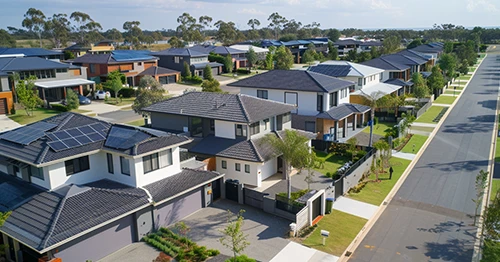Updated: 30 Jul, 2024
Unless you’ve been living under a rock, you would have heard that the Reserve Bank of Australia (RBA) cut the official cash rate by another 25 basis points to 2.00%. That’s right, another historical low for Australia and a chance for homeowners to breathe a little sigh of relief.
That is, of course, if your bank actually passes on the rate cut.
In the past week or so since the announcement, only a couple of lenders, including one major bank, have passed on the rate cut in full.
Another major bank has only partially passed on the cut while two other majors are still deciding what to do with their variable rates.
Has your bank passed on the rate cut to you?
If not, there are ways you can get a better deal than what your bank is offering you.
How do I get a better interest rate?
- Speak to your bank: If you’re on a variable rate and have a decent amount of equity in your property (paid off 20% of the value of your property), call your lender and ask for a better deal.
If they won’t budge, you have some other options available to you. - Shop around: The beauty of Australia is that there’s more than 40 lenders to choose from so consider taking your business elsewhere if you don’t think you’re being treated fairly. It’s your right.
- Ask a mortgage broker to do this: A mortgage broker can actually do all of this for free on your behalf even if you’re not an existing client.
The best part is that the broker can usually negotiate a better deal than you could by speaking to the bank directly.
The reason is that they have the credit experience to put together a strong case that shows to the bank that you’re a good borrower.
The best brokers have strong relationships with the Business Development Managers of major banks and lenders due to the sheer number of loans they write meaning they have more sway in getting you a great deal.
Are you eligible to refinance?
- If you’re home loan is on a variable rate, you can actually refinance whenever you like, or after two years if you went through a broker initially. Most borrowers look at refinancing every 3 to 4 years but, then again, waiting that long means possibly missing out on these historic rate cuts.
- If you’re on a fixed rate, you probably shouldn’t refinance due to the break costs and exit fees involved. However, it does sometimes make sense financially, especially if you recoup those costs within two years of making the switch.
- For split loan mortgages, you can actually lock in the good times on the variable component whenever you like.
Check out this complete guide to refinancing to discover the benefits and drawbacks of refinancing and then speak with your mortgage broker before making a decision.
What if I lock in and rates drop again?
The past few years have been a period of seemingly never-ending competition between the banks as the RBA has either kept the official cash rate unchanged or dropped them significantly.
In fact, some economists have recently told the media that any potential rate rise is several years away. On the other hand, further cuts aren’t expected anytime soon as the Australian dollar is quite high at the moment.
Does anyone know when rates will rise again or if further cuts are just around the corner?
Banks are making literally billions of dollars in profit but will they continue to get even tighter when it comes to passing on the full rate cut to their customers.
Unfortunately, no one really knows beyond speculations of Australia’s wider, macro economy: it’s basically a lot of complex (boring) ‘if’, ‘when’ and ‘how’ discussions better saved for the Australian Financial Review.
The bottom line is that if you want to lock in the good times (if and when your bank comes to the party), it’s best to speak to your mortgage broker before making a decision.
For example, if you just want to make the bare minimum mortgage repayments and throw a little extra in when you can spare it, you might be better off fixing.
On a variable rate on the other hand, you can make as many additional repayments as you want which is basically the best way to demolish your mortgage over the long term. So if you’re in a good financial position to do so, this may be a better option.
Work out how much quicker you can pay off your home loan and the money you can save in interest with the extra repayment calculator.
Why don’t banks tend to pass on the full rate cut?
Some lenders don’t pass on the full rate cut because it can increase the spread between their cost of funds and the interest rate charged to borrowers.
Cost of funds refers to the interest rate paid to depositors on such financial products as savings accounts and term deposits.
The less spread between these two factors, the less profit the lender stands to make which means their shareholders won’t be happy.
If they keep their variable rate where it is, the lenders’ customers won’t be happy.
Lenders are in a constant balancing act of keeping both their customers and shareholders happy. Unfortunately, sometimes their customers lose out.
Want to get a better rate than what your bank is offering?
Call us on 1300 889 743 or complete our free assessment form and discover how we can help you.





